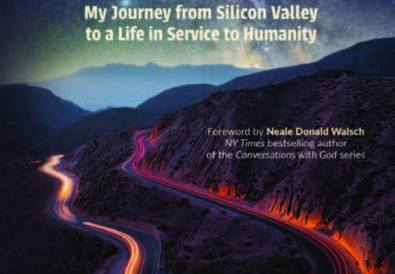Definitions belong to the definers, not the defined.
~ Toni Morrison
You have been taught that if you name something, you gain power over it. Yet this principle backfires when we become so fixated on giving things names that they gain power over us. The title of a book by Carlin Diamond brilliantly captures this principle: Love It, Don’t Label It. In an era of obsession with categories and endless dissection of life into tiny pieces, we can use more love and fewer tags.
The field of medicine is masterful at labeling diseases, for many good reasons. Yet when we seek to heal a disease, thinking in boxes can work against us. We treat the disease as a thing that has a life of its own rather than an energy stream that has become blocked. Quantum physicists argue over whether an observed phenomenon is a particle or a wave; is it a thing, or a flow? An object, or an energy? While there are arguments on both sides, we do far better to think of a disease as trapped or disordered energy rather than an independent entity.
When we observe symptoms—even the word “symptom” is an interpretation—our mind tends to jump to what disease this phenomenon might be heralding. Medical students often go into a tizzy when they notice symptoms in their bodies associated with the many diseases they are studying. Hypochondriacs do the same. The mind focused on disease is constantly gathering evidence to support its reality. So is the mind focused on health.
A number of my coaching clients are medical doctors. The most consistent complaint I hear about their profession is that they hate the paperwork they have to submit. One doctor spends one-third of his working hours seeing patients, and two-thirds filling out forms. A psychiatrist must document in detail her conversations with her patients, so she sits with a laptop between her and the patient, constantly typing rather than engaging with the patient eye-to-eye. Why the deluge of papers and labels? Doctors cannot get paid by insurance companies, the primary source of their income, unless they assign a diagnosis to a patient. To maintain their livelihood, physicians must put every patient in a box.
But what if a client does not fit into a box? What if there is more to a patient than their current complaint, and their potential for healing exceeds the name of their disease? What if a client’s physical symptoms are more related to their mental and emotional matrix than external influences? What if the physician’s vision of the patient is a major factor in the patient’s healing, and can generate transformation beyond medication?
While doctors may need to label patients for professional and financial purposes, the real damage occurs when patients adopt those labels and identify with them. Rather than thinking, “I have this issue I am addressing,” most patients tend to become their diagnosis. “I am a diabetic.” “I am a schizophrenic.” “I am a cancer patient.”
While all of these identities have practical implications in treatment, the leap from “I have” to “I am” is monumental and in many cases tragic. Metaphysically, the words “I am” are the most powerful that a human being can utter. They represent the word of God becoming manifest in form. “In the beginning was the word” applies not only to the beginning of the universe, but to the beginning of every human endeavor. Whatever you fill in the blank with after you say, “I am,” you create in your experience. If you truly wish to be healed and lead a healthy, productive life, take extreme care when choosing the words following, “I am,” for in speaking them you build your destiny.
The Old and New Testaments underscore the power of these two mighty words. When Moses encountered God at the summit of Mount Sinai, he asked, “What shall I tell the people that your name is?” God replied, “I am that I am.” Because God’s name is “I am,” whenever you speak those words you invoke the creative power of God.
When Jesus was asked who he was, he answered, “I am the way, the truth, and the life.” Jesus identified only with the attributes of God, which are equally true of all of us. Jesus did not claim his religion, gender, family, or body as himself. He claimed the highest that he was, as a model for all of us to follow. Jesus’ mission was not to set himself up as an idol to be worshipped, but as a way-shower to inspire us to accept the divine identity we share with him.
Excerpted with permission by Alan Cohen Publications, from The Master Keys of Healing ©2020, by Alan Cohen

 Alan Cohen is the author of many inspirational books including Spirit Means Business. For information on his programs and books, videos, audios, online courses, retreats, and other inspirational events and materials, visit AlanCohen.com.
Alan Cohen is the author of many inspirational books including Spirit Means Business. For information on his programs and books, videos, audios, online courses, retreats, and other inspirational events and materials, visit AlanCohen.com.




















